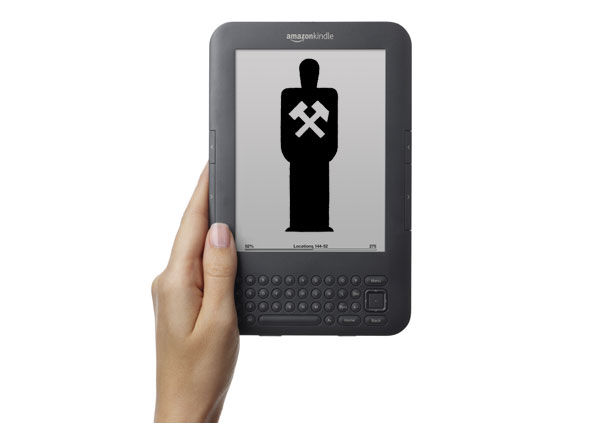Books May Be Better Objects, but E-Books Are Better Tools
Can Kevin Kelly and Nick Carr both be right? A plausible thought about the future of the book.

Nick Carr likes the fixities of the printed book; Kevin Kelly agrees that "these are very real, and very attractive qualities," but likes the fluidities of the e-book.
Both make good points, but both are largely talking about the book as a designed object rather than the book as a tool for use. If we think in the latter terms the picture gets more complicated, not least because we have to think not only of the physical format (ink-on-paper versus pixels-on-screens or e-ink-on-screens) but also of underlying infrastructures.
For instance, consider these facts: (a) Reading is a major part of my job; (b) I annotate quite heavily the books I read for work; (c) I buy a lot of those books from Amazon in Kindle format. A while back I left my Kindle on an airplane, and the airline couldn't retrieve it; but when I bought a replacement I downloaded all the books I had read and there my annotations were, unchanged. In fact, I didn't even have to buy a replacement: I could have used the Kindle app for my Mac, or for the iPhone or iPad, or I could have read the books online, and in any of those environments my annotations would be present and identical. (On the web I can even copy and paste the passages I have highlighted and my own notes.)
So what we have here is best described not as fixity or fluidity, but as transferability -- a reassuring kind of consistency across platforms and formats. You might say that this is fixity enabled by fluidity: the reproducibility of pixels combined with the stability of Amazon's enormous database amount to insurance against the fragility of any particular designed object. (And by downloading my books and annotations to two or three "designed objects" I also insure myself against the failure of Amazon's databases.)
I have some significant concerns about Amazon's increasing dominance over the publishing world, and the company may not keep my loyalty forever; but the transferability they have enabled is a huge boon to me in my work. Years ago, when I was a young book collector, I decided that I had to spend my money on books for use rather than display -- I didn't have the resources to be a collector and a scholar. Similar thoughts have prompted my recent move towards electronic texts. Like Nick Carr, I love the fixities of the book as a designed object; but the resources offered by digital versions of texts make my life as a scholar far easier than it has ever been. I can't resist that.
Image: Amazon/Gerd Arntz/Alexis Madrigal.